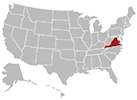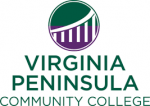
Page Navigation
- How To Become A Professional Peer Recovery Coach In Virginia
- Steps To Become A Professional Peer Recovery Coach In Virginia
- Schools/Programs That Offer Professional Peer Recovery Coach Training In Virginia
- Recovery Coach Representative Schools in Virginia – Summary Table
- Salary For A Professional Peer Recovery Coach In Virginia
- Frequently Asked Questions
How To Become A Professional Peer Recovery Coach In Virginia
Like many states in America, Virginia is suffering from the current drug crisis in our country.
Since 2013, the leading cause of unnatural death in Virginia has been from drug overdose.
In 2021, 76% of these deaths were from drugs.
The plague of fentanyl has contributed greatly to the rise in accidental overdoses.
The need to help people recover before it’s too late has reached crisis mode in Virginia and elsewhere.
That is why the need for professional recovery coaches (referred to as recovery specialists in Virginia) is vital.
Recovery coaches are individuals who were themselves once enveloped by the disease of addiction.
Coaches have years of recovery under their belts and are able to mentor, model, and inspire others to do the same.
They not only help inspire, but they also help with goal setting, locating resources, and help with any general life skill assistance their client may need.
Coaches are an important part of the recovery team.
They work in conjunction with therapists, medical doctors, social workers, and other community services to help ensure a successful recovery.
Recovery coaches are not therapists and do not diagnose, or prescribe medication, or treatments.
A good peer recovery coach will need to be patient, honest, empathetic, organized, and knowledgeable in the area of addiction and recovery.
If you’re interested in learning more about becoming a professional recovery coach in Virginia, read on for some useful information.
Steps To Become A Professional Peer Recovery Coach In Virginia
In order to become a professional recovery coach in Virginia, you must meet certain requirements and follow a series of steps.
Once you’ve completed them all, you can begin practicing as a coach.
- Have a high school diploma or GED.
- Have at least 2 years of recovery from alcohol and/or drugs.
- Be comfortable sharing your experience and answering questions honestly.
- Pass the state-mandated course to become a peer recovery specialist.
- Pass the Virginia Certification Board exam.
- Affirm and sign the code of ethics, which includes a commitment to sharing your story, keeping others’ information confidential, non-discrimination, and professional conduct.
- Send all necessary paperwork to the Virginia state certification board with a check for the certificate.
Schools/Programs That Offer Professional Peer Recovery Coach Training In Virginia
1. SAARA – Substance Abuse And Addiction Recovery Alliance Of Virginia
About The Organization
SAARA is a non-profit organization in Virginia that gathers support and works with legislators to enhance the care and well-being of people with substance-use disorder.
They run programs, provide resources, and train people to work with individuals dealing with drug and alcohol problems.
About The Program
SAARA facilitates a 72-hour program that trains people to become peer recovery coaches and pass the state certification exam.
The program is run by certified instructors that are in recovery themselves.
The comprehensive training includes defining and exploring mental illness and addiction.
Other topics covered are the recovery process, mentoring techniques, major models of recovery, crisis intervention, ethics, de-escalation strategies, health and wellness, and trauma responses.
The course is free of charge, but students are given the option to give a donation to the program if they are able.
Address: 2222 Monument Ave.
Richmond, Virginia 23220
Phone: (804)7624445
Website: https://www.saara.org
2. Virginia Peninsula Community College 
About The School
Founded in 1967 to serve the greater Hampton area, VPCC is accredited by the Southern Association of Colleges and Schools.
The 2-year college offers associate degrees in everything from the arts and business to nursing and law enforcement.
About The Course
The college offers an open enrollment program for peer recovery coaches that can be done online.
The courses are a total of 60 hours long, and offer the full support of instructors.
The course topics include trust building, ethics, how to identify relapse and what triggers it, mentoring techniques, and the effect that drugs have on the brain.
The cost of the course is $1,200.
Financial aid is available for qualified students.
Address: 99 Thomas Nelson Rd.
Hampton, Virginia 23666
Phone: (757)8252864
Website: https://www.vpcc.edu
Recovery Coach Representative Schools in Virginia – Summary Table
Top 2 Schools in Virginia
| School Name | Address |
|---|---|
| SAARA - Substance Abuse And Addiction Recovery Alliance Of Virginia | 2222 Monument Ave. Richmond, Virginia 23220, USA |
| Virginia Peninsula Community College | 99 Thomas Nelson Rd. Hampton, Virginia 23666, USA |
Salary For A Professional Peer Recovery Coach In Virginia
The average salary for a professional peer recovery coach in Virginia is $34,131 per year.
However, coaches can make upwards of $40,000 per year depending on the type of facility and location they work at.
The highest salaries for recovery coaches in Virginia are located in Arlington, Alexandria, Reston, and Annandale.
Professional recovery coaches’ individual salaries will also differ based on education, experience, and reputation.
Annual Salary Range:Average Salary of Professional Recovery Coachs in Virginia
| City Name | Salary |
|---|---|
| Virginia Beach | $32,899 |
| Norfolk | $32,404 |
| Chesapeake | $32,363 |
| Richmond | $33,994 |
| Newport News | $32,583 |
| Hampton | $32,583 |
| Alexandria | $38,309 |
| Portsmouth | $32,404 |
| Roanoke | $31,816 |
| Lynchburg | $31,564 |
Regional Salary in Virginia
| Region | Employed | Avg. Annual Salary | Avg. Hourly Pay | Top 10% Annual Salary | Bottom 10% Annual Salary |
|---|---|---|---|---|---|
| Blacksburg-Christiansburg-Radford, VA | 240 | $106,110 | - NA - | $208,530 | $25,890 |
| Charlottesville, VA | 260 | $65,090 | - NA - | $113,340 | $29,190 |
| Harrisonburg, VA | 150 | $48,590 | - NA - | $65,860 | $30,310 |
| Lynchburg, VA | 230 | $49,530 | - NA - | $73,450 | $25,230 |
| Richmond, VA | 970 | $77,660 | - NA - | $102,280 | $28,360 |
| Roanoke, VA | 270 | $51,930 | - NA - | $74,300 | $27,190 |
| Virginia Beach-Norfolk-Newport News, VA-NC | 900 | $50,750 | - NA - | $74,840 | $28,500 |
| Winchester, VA-WV | 70 | $44,470 | - NA - | $74,550 | $24,960 |
* Employment conditions in your area may vary.
Frequently Asked Questions
Do I need to renew my recovery Coach certification in Virginia?
Yes.
Each year, recovery coaches must complete continuing education courses and send proof to the certification board to renew their certification.
How can I sign up for professional recovery coach training?
It’s easy to sign up.
Just visit the Virginia Peer Recovery Specialist portal at vaprs.org and fill out the online form.
Keep in mind, you need to meet the basic requirements.
Where can I work as a professional recovery coach in Virginia?
Recovery coaches can work in a variety of settings, including veterans’ hospitals, inpatient centers, detox centers, community clinics, emergency rooms, and private counseling services.
Is being a peer recovery coach a hood job?
For the right person, being a recovery coach is an extremely rewarding career.
You get to help people take back their lives and gain happiness, the same way you did.




